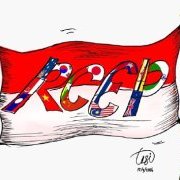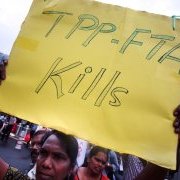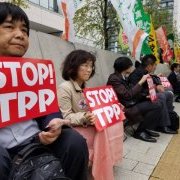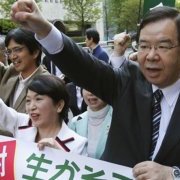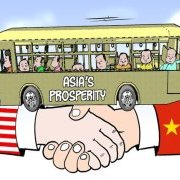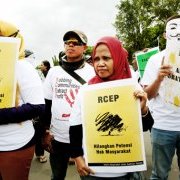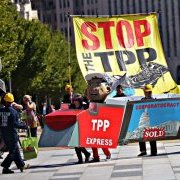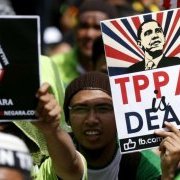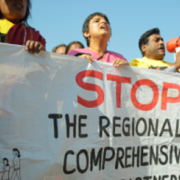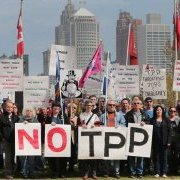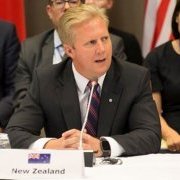14-Dec-2016
The Economic Times
The members common to two agreements (TPP and RCEP), especially developed countries such as Australia, Japan and New Zealand, want talks at the RCEP trade bloc to move ahead full steam
12-Dec-2016
The Times of India
Doctors Without Borders/Medecins Sans Frontieres (MSF) and other health groups have reiterated concerns about harmful intellectual property provisions in the RCEP
12-Dec-2016
The Business Times
A curious thing happened when the Japanese Parliament voted to ratify Japan’s participation in the Trans-Pacific Partnership (TPP) even though the agreement has been widely proclaimed to be "dead"
9-Dec-2016
The Asahi Shimbun
Although seemingly dead due to opposition from U.S. President-elect Donald Trump, the Trans-Pacific Partnership free trade agreement was approved by the Diet.
9-Dec-2016
Bloomberg Quint
Matters such as intellectual property rights, as well as trade in goods and services, remain unresolved. The next talks will be held in Japan in February.
7-Dec-2016
The Jakarta Post
Amid the collapse of the United States-backed Trans-Pacific Partnership (TPP) pact, trade officials from 10 Southeast Asian countries and six key partners started on Tuesday talks on a rival deal with new urgency.
2-Dec-2016
Friends of the Earth International
The current trade and investment system—including TTIP, TPP and TiSA—needs to be challenged and fundamentally transformed in order to achieve a more just and sustainable world.
28-Nov-2016
Eurasia Review
While the dream of free trade was born in the prosperous West, it will be completed in the emerging East.
28-Nov-2016
Asia Pacific Report
Indonesia has proposed the setting up of a new trade bloc that could counterbalance the dominance of the United States and China.



